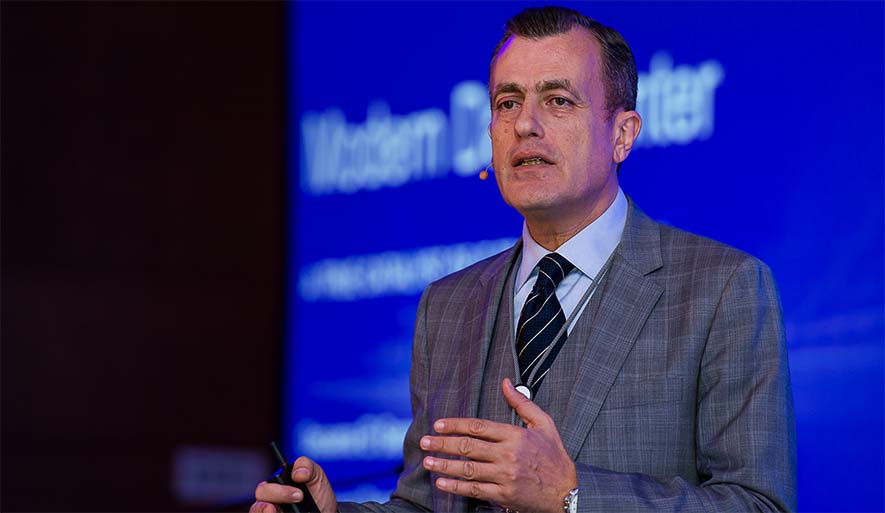Kathy Gibson is at Dell EMC Partner Summit in Cape Town – Adopting a modern data centre is less about technology, and more about a new way of thinking.
This is the message from Ossama El Samadoni, regional director: modern data centre at Dell EMC, who points out that organisations have to consider the disruptive factors that are affecting their industry.
“If most cars are driverless, who owns the motor industry? Is it the consumer, the software companies or the motor manufacturers? But, since cars become assets on the move, the banks could end up owning the automotive industry.”
He says 50% of GDP will be digitised by 2021, and 48% of business leaders don’t know what their industry will look like at that time.
As technology becomes pervasive in our lives, and Internet of Things and smart city become mainstream, the amount of data – and the speed at which it needs to be processed – could become overwhelming.
“So you develop and deploy the system, you analyse the data, and you create insights,” El Samadoni says.
“But you cannot hold all these applications, data and connections on the same legacy data centre – you need a modern data centre.”
The modern data centre is a concept, he adds, that maintains the old and allows organisations to develop the new.
“Dell EMC’s mission is to help customers to be innovative disruptor with quantifiably business outcomes,” he adds.
“This is very important: there is no decision that cannot have an economic return.”
To do this, Dell EMC has developed a modern data centre as the foundation for IT transformation.
This consists of flash technology, scale-out performance, software-defined systems that are cloud-enabled, trusted and embrace artificial intelligence (AI) and machine learning (ML).
Among the drivers for smart city transformation are the need to make cities more liveable, workable, sustainable. “Every city needs to be connected,” says El Samadoni.
On the technology front, cities still have legacy systems that need to co-exist with new technologies. And it all needs to ensure digital security and privacy. This will likely be in a hybrid cloud environment.
Operationally, smart cities need to enable better decisions and efficient policies through the provision of smart and open data, El Samadoni explains.
When it comes to financials, cities – like any other organisation – are under constraint and have to be risk averse, seeking solutions that are validated.
Organisations should go through a process prior to making a technology decision, he adds, and ask themselves a number of questions:
* Do you have executive sponsorship or pressure to transform?
* Are the majority of services automated, available through self-service portals and measured?
* Is your team spending the majority of their time on innovation projects rather than operations? And is IT a single operation unit delivering business value rather than siloed and technology focused?
* Does IT have adequate funding?
Once organisations have established where they are currently, they need to map where they wish to be and creating a timeline to do so.
Doing this will help to increase the value provided by IT, he says.
Data centre modernisation is the journey to automation, and full transformation that will help organisations to make themselves future-proof, according to El Samadoni.
The first step is to look at the greater rationalisation of infrastructure design (Grid), on both an operational and infrastructural basis, he explains.
Parts of the system today would typically be on-premise as legacy and virtual systems; others will be in the cloud as infrastructure as a service (IaaS) and platform as a service (PaaS).
On the operational front, on-premise systems will be SLA-driven in an ITIL/ITSM framework, while cloud systems will be service driven via APIs.
In terms of automation, on-premise systems are change process-driven, while cloud systems are on a self-service and charge-back basis that is fully automated and orchestrated.
On-premise connectivity is via the traditional network; on the cloud it is a virtual network.
Infrastructure will also move from physical to converged and hyperconverged as it becomes more cloud-based.
Organisations need to assess where their systems are today, and what their goal is for the future.
Dell EMC offers consultancy services as well as a full family of technologies to make the move. It will help partners and customers to build a business case that measures value in terms of total cost of ownership (TCO) and the impact on the business.


